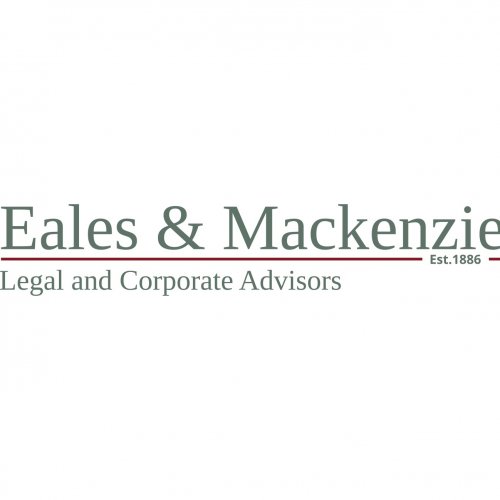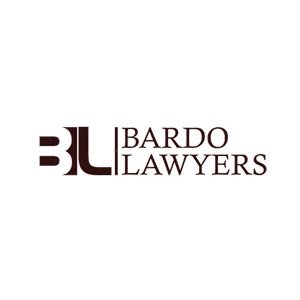Best Franchising Lawyers in Melbourne
Share your needs with us, get contacted by law firms.
Free. Takes 2 min.
List of the best lawyers in Melbourne, Australia
About Franchising Law in Melbourne, Australia
Franchising in Melbourne, Australia, is a thriving sector, offering various opportunities for both franchisors and franchisees. The franchising system allows franchisors to expand their businesses efficiently, while franchisees can access established business models and brand recognition. However, the complex legal framework governing franchising necessitates a solid understanding of Australia's Franchising Code of Conduct, which regulates many aspects of the franchise relationship. This nationally recognized Code ensures both parties meet specific standards, promoting transparency and fairness. Understanding the nuances of this Code is crucial for anyone involved in franchising within Melbourne's dynamic market.
Why You May Need a Lawyer
Several common scenarios can prompt the need for legal advice in the franchising sector. Potential franchisees often require assistance in reviewing and negotiating franchise agreements, ensuring their rights and obligations are clearly defined. Franchisors, on the other hand, may seek legal counsel to draft robust franchise agreements and disclosure documents. Additionally, disputes may arise between franchisors and franchisees, where legal representation can be essential for conflict resolution. Whether you are entering a franchise agreement or managing ongoing franchise operations, a specialized lawyer can help navigate these complexities, ensure compliance, and protect your business interests.
Local Laws Overview
Key aspects of local laws related to franchising in Melbourne include the adherence to the Australian Franchising Code of Conduct, which is mandatory and covers disclosure requirements, dispute resolution processes, and conduct guidelines for both parties. Franchise agreements must comply with this Code, which aims to balance the power dynamics between franchisors and franchisees. Additionally, the Australian Consumer Law (ACL) applies to franchises, offering protections against misleading representations and unfair contract terms. Understanding how these laws apply to your franchising situation is crucial to avoid legal pitfalls and foster a successful business relationship.
Frequently Asked Questions
What is the Franchising Code of Conduct?
The Franchising Code of Conduct is a mandatory industry code in Australia that regulates the conduct of franchising parties. It outlines disclosure obligations, ensures fair dealings, and provides mechanisms for dispute resolution.
Do I need to sign a franchise agreement?
Yes, signing a franchise agreement is a crucial step in formalizing the business relationship between a franchisor and a franchisee. It outlines terms and conditions, including fees, obligations, and duration.
Are franchise agreements negotiable?
While franchise agreements are usually standard form contracts, some terms may be negotiable. It’s advisable to seek legal guidance to review and negotiate terms that may impact your business significantly.
What are my rights as a franchisee?
As a franchisee, you have the right to receive pre-contractual disclosure, a cooling-off period after signing the agreement, and protection under the Franchising Code and Australian Consumer Law.
How can disputes in franchising be resolved?
Dispute resolution procedures under the Franchising Code include mediation, which is often the first step before pursuing legal action. Having legal representation can be helpful during mediation.
What are my obligations as a franchisor?
Franchisors must comply with the disclosure requirements, act in good faith, and adhere to the Franchising Code and Australian Consumer Law. They are also responsible for providing ongoing support to franchisees.
What is included in a disclosure document?
A disclosure document provides information about the franchisor and franchise, including financial details, fees, any legal proceedings, and a list of current and former franchisees.
Can I terminate a franchise agreement?
Franchise agreements usually specify conditions under which they can be terminated. These may include breach of terms or mutual agreement. Legal advice is useful to navigate these situations appropriately.
What are common fees associated with franchising?
Common fees include initial franchise fees, ongoing royalties, marketing fees, and renewal fees. Understanding these costs is essential before entering a franchise agreement.
How does the Australian Consumer Law affect franchising?
The Australian Consumer Law provides protections against unfair practices and misleading conduct, ensuring fair treatment of consumers and businesses within the franchising sector.
Additional Resources
For those seeking further information, several resources and organizations can provide valuable insights and assistance:
- The Australian Competition and Consumer Commission (ACCC): Enforces the Franchising Code of Conduct and provides guidance for franchise participants.
- The Franchise Council of Australia (FCA): Offers resources, industry updates, and support for both franchisors and franchisees.
- Business Victoria: Provides specific guidance and support for businesses operating within the state of Victoria.
Next Steps
If you require legal assistance in franchising, consider consulting with a lawyer specializing in franchising law. Start by researching local law firms in Melbourne that offer services in this area. Prepare any relevant documents, such as franchise agreements or disclosure documents, for your consultation. During your meeting, be ready to discuss your business needs and any specific concerns you may have regarding franchising. Taking these steps will ensure you receive informed and targeted legal advice tailored to your situation, allowing you to proceed confidently with your franchising endeavors.
Lawzana helps you find the best lawyers and law firms in Melbourne through a curated and pre-screened list of qualified legal professionals. Our platform offers rankings and detailed profiles of attorneys and law firms, allowing you to compare based on practice areas, including Franchising, experience, and client feedback.
Each profile includes a description of the firm's areas of practice, client reviews, team members and partners, year of establishment, spoken languages, office locations, contact information, social media presence, and any published articles or resources. Most firms on our platform speak English and are experienced in both local and international legal matters.
Get a quote from top-rated law firms in Melbourne, Australia — quickly, securely, and without unnecessary hassle.
Disclaimer:
The information provided on this page is for general informational purposes only and does not constitute legal advice. While we strive to ensure the accuracy and relevance of the content, legal information may change over time, and interpretations of the law can vary. You should always consult with a qualified legal professional for advice specific to your situation.
We disclaim all liability for actions taken or not taken based on the content of this page. If you believe any information is incorrect or outdated, please contact us, and we will review and update it where appropriate.
















